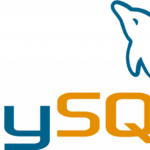But how do you know which Linux server distribution is the best? In most situations, the answer will depend largely on your personal preferences, but there are several Linux distributions for servers that stand out from the crowd, including those listed in this article, and that’s where you should start.
Choosing a Linux Distribution for Your Server
Just because you can install virtually any Linux distribution on a server doesn’t mean that all Linux distributions are suitable for this particular task. A good Linux server distribution should have the following three traits:
- Stability: Servers tend to have significantly longer uptimes than desktop computers, so it’s important that you select a Linux server distribution that is able to maintain it without reboots. Stability can be achieved by getting rid of unnecessary components and by polishing necessary components.
- Security: Most experience software developers will tell you that there’s no such thing as bug-free software. That’s why you should select a distribution that receives regular security updates and implements effective security policies to minimize the potential impact of software bugs on security.
- Flexibility: You should select a Linux server distribution that comes with all the software applications you need to set up your server according to your needs. It should help you customize how the server works by providing useful administration tools.
5 Best Linux Distributions for Servers
The best Linux distribution for servers is the one that can satisfy your needs the most and provides you with all the tools you need to keep your server running smoothly and without unnecessary reboots. Let’s take a closer look at five great options and discuss the pros and cons of each.
DEBIAN
+ Long history
+ More than 50,000 packages
+ Active community
– Strict on open-source
– Some branches contain very outdated software
As one of the most venerable Linux distributions in the world, Debian has always been a popular choice both on desktop computers and servers. Because it has multiple software branches, users can easily choose the right balance of stability and up-to-dateness. Debian is known for its active community of enthusiastic users, and its deep commitment to open-source software.
The Network Boot image provides a great way how to get started with Debian on a server, and the official installation guide explains everything you need to know to install it on any supported architecture.
Red Hat Enterprise Linux
+ Commercial customer support
+ Certified hardware compatibility
– Cost
Targeting the commercial market, Red Hat Enterprise Linux, or just RHEL for short, is the world’s leading enterprise Linux platform. RHEL users can purchase enterprise-grade customer support and training services to access Red Hat’s skilled customer support engineers 24×7.
In addition to personalized support, RHEL offers a whole host of advanced features to help its users successfully control complex multi-server environments and combat intrusions. For example, with Red Hat Smart Management, administrators can manage Red Hat Enterprise Linux on-site or in the cloud and assess system performance, compile reports, and remediate security issues across all operating systems.
UBUNTU
+ Large community
+ Plenty of online learning resources
+ User-friendly
Based on Debian, Ubuntu is currently the most popular Linux server distribution in the world. Server administrators often choose the LTS (Long-Term Support) version of Ubuntu Server because it comes with five years of support at no extra cost.
Ubuntu inherited the .deb package format from its parent distribution, allowing users to choose from a massive collection of existing software packages. The desktop version of Ubuntu includes the GNOME desktop environment, while Ubuntu Server ships without any GUI. Canonical, the company behind Ubuntu, provides enterprise support, and there is a wealth of learning resources online created by the community.
CentOS
+ RHEL compatibility
+ Free (unlike RHEL)
+ Enterprise-level security updates
– No first-part commercial support
CentOS is a popular server distribution whose biggest selling point is the fact that it maintains a 100% compatibility with RHEL. As such, you can think of it as a free version of RHEL. The only thing it doesn’t have is first-party commercial support. However, there are many third-party companies offering CentOS customer support services.
Just like RHEL, CentOS is an extremely stable Linux server distribution that includes only extensively tested packages. Because of its low price of zero dollars, it’s a great choice for startups on a budget as well as aspiring server administrators who would like to learn by doing.
OpenSUSE
+ Great administrative tools
+ Support subscriptions available
– Less active community
OpenSUSE is an established Linux distribution with handy administration tools and optional commercial support subscriptions. You can choose between OpenSUSE Tumbleweed and OpenSUSE Leap. The former relies on a rolling-release model, so you can keep your server constantly up to date without major updates or complete reinstalls, while the latter follows a more traditional release model.
Regardless of which version of OpenSUSE you decide to go with, you will always have access to the best open-source tools developed by its community, including Open Build Service (OBS), openQA, YaST, and Kiwi.
Conclusion
Thanks to its open source nature, excellent security, and limitless customizability, Linux has always been the operating system of choice for server administrators. Today, there are Linux distributions that can satisfy the needs of everyone from small businesses looking to keep their costs down to large enterprises interested in building custom solutions with limitless scalability. When selecting a Linux distribution for servers, remember that the best distribution is the one that can satisfy your requirements the most—not the one with most users or most impressive features.







